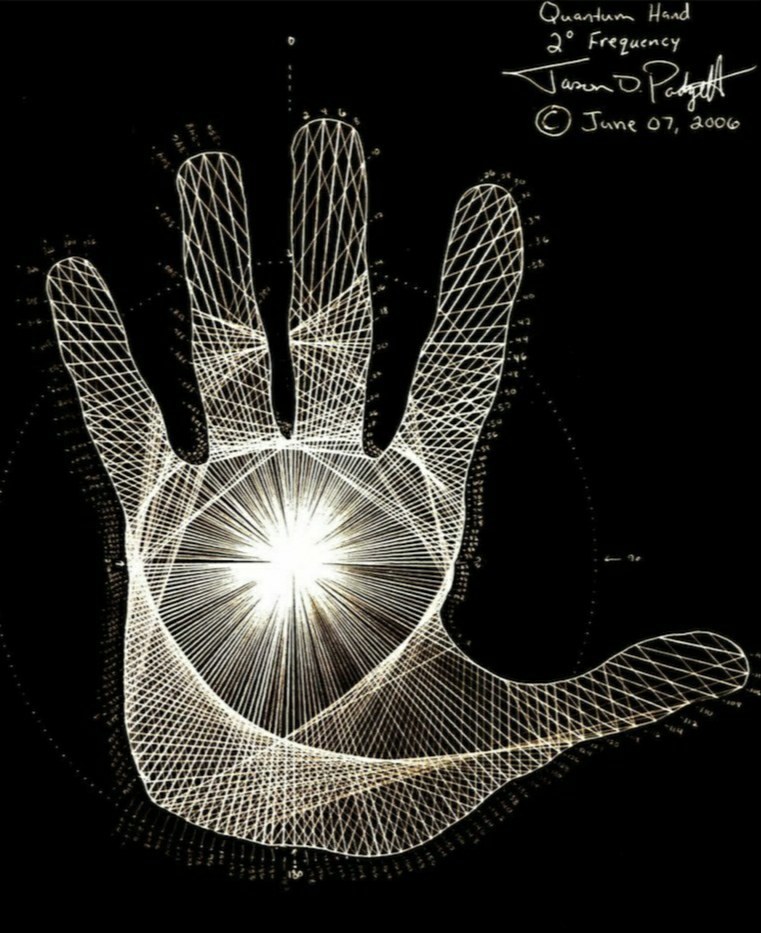In 2002, two men attacked Jason Padgett — a furniture salesman from Tacoma, Washington, who had very little interest in academics — outside a karaoke bar, leaving him with a severe concussion and post-traumatic stress disorder. But the incident also turned Padgett into a mathematical genius who sees the world through the lens of geometry.

The Strange Case Of Jason Padgett

In September 2002, two men savagely attacked Jason Padgett outside a karaoke bar, leaving him with a severe concussion and post-traumatic stress disorder. But the incident opened a hidden door in Padgett’s mind, as he turned into a mathematical genius who can see the world through the lens of geometry.
Padgett, a furniture salesman from Tacoma, Washington, who had very little interest in academics, developed the ability to visualize complex mathematical objects and physics concepts intuitively. The injury, while devastating, seems to have unlocked part of his brain that makes everything in his world appear to have a mathematical structure.
Now he can see shapes and angles everywhere in real life — from the geometry of a rainbow, to the fractals in water spiralling down a drain, which is just really beautiful, according to Padgett.

Padgett, who in 2014, published a memoir with Maureen Seaberg called “Struck by Genius” is one of a rare set of individuals with acquired savant syndrome, in which a normal person develops prodigious abilities after a severe injury or disease. Other people have developed remarkable musical or artistic abilities, but few people have acquired mathematical faculties like Padgett’s.
Now, researchers have figured out which parts of the man’s brain were rejiggered to allow for such savant skills, and the findings suggest such skills may lie dormant in all human brains.
Here’s What Happened To Jason Padgett
Before the injury, Padgett was a furniture salesman who cared little about anything beyond partying and chasing girls. He hadn’t progressed beyond than pre-algebra in his math studies. Padgett said, he cheated on everything, and he never cracked a book. Then one fateful night changed him forever.
Padgett recalls being knocked out for a split second and seeing a bright flash of light. Two guys started beating him, kicking him in the head as he tried to fight back. Later that night, doctors diagnosed Padgett with a severe concussion and a bleeding kidney, and sent him home with pain medications, he said.
Soon after the attack, Padgett suffered from PTSD and debilitating social anxiety. But at the same time, he noticed that everything looked different. He describes his vision as “discrete picture frames with a line connecting them, but still at real speed, and everything has a pixilated look.”
Padgett had literally a thousand or more drawings of circles, fractals, every shape that he could manage to draw. It was the only way he could manage to communicate effectively what he was seeing.

Padgett believed his drawings “held the key to the universe” and were so important that he needed to take them everywhere with him. While on a rare trip out one day, he was approached by a man who had noticed Padgett with his drawings and told him they looked mathematical.
“I’m trying to describe the discrete structure of space-time based on Planck length (a tiny unit of measurement developed by physicist Max Planck) and quantum black holes,” Padgett told him. It turned out the man was a physicist and recognized the high-level mathematics Padgett was drawing. He urged him to take a maths class, which led Padgett to enrol in a community college, where he began to learn the language he needed to describe his obsession.
Padgett dislikes the concept of infinity, because he sees every shape as a finite construction of smaller and smaller units that approach what physicists refer to as the Planck length, thought to be the shortest measurable length.
The Two Attackers
The two men who attacked him that fateful September night were never convicted despite Padgett identifying them and pressing charges. Years later, however, one of the men, Brady Simmons, wrote to Padgett to apologize while he was undergoing treatment for prescription drug addiction following a suicide attempt. In a sense, two lives were changed in the years that followed the attack.




